On November 11, Iraq will hold its seventh parliamentary election since the 2003 regime change. Unlike previous elections that unfolded amid civil war, protest, and domestic unrest, this one will occur in a moment of domestic stability. That stability, however, should raise the bar for democratic performance. Iraq can no longer be praised for holding elections on schedule. Iraqi leaders must address the issues of dwindling voter turnout, the persistence of ethno-sectarian campaigning, regressive changes in the electoral law, and the counterproductive insistence on consensus governments. Yet Iraq’s political elite have no incentive to reform a system that benefits them. Thus, if change is to occur, outside actors—activists, independents, and civil society—must press for meaningful reforms through parliamentary opposition.
Iraq’s electoral challenges
Election campaigning and elite control
After the Islamic State’s territorial defeat in 2017, Iraq’s political parties shifted from ethno-sectarian to nationalist electoral strategies. They raised slogans about the homeland, nationhood, and citizenship to appeal to an Iraqi public eager for unity. For example, in the lead-up to the 2018 elections, Iraq’s wartime prime minister, Haider al-Abadi, led a multi-ethno-sectarian electoral list that campaigned on overcoming Iraq’s sectarian divisions. Enormous protests in 2019 further ushered in a wave of protest-inspired parties that identified as “civil” and rejected sectarianism altogether, laying the foundation for this type of party to proliferate in the 2021 parliamentary elections.
This momentum against sectarianism has continued into the current election cycle, but it remains largely rhetorical. Incumbent Prime Minister Mohammed Shia al-Sudani’s electoral coalition looks nearly identical to Abadi’s in 2018. His major running partner is Falih Al-Fayyadh, head of the Popular Mobilization Commission, and his coalition contains a hodgepodge of various parties and independents banking on the premier’s popularity and the incumbency advantage.
Worryingly, al-Sudani has absorbed several of the promising reformists that emerged during the 2019 protest movement. This shift is likely enabled by Iraq’s new election law. The reform reverted the country’s electoral map from 83 smaller districts with single non-transferable votes to a province-wide, proportional electoral system with 18 districts, making it more difficult for smaller parties and independents to win seats. This has contributed to a sense of general voter apathy, driven by people’s belief that the political system reproduces the same politicians and policies. Once independents and new, smaller parties demonstrated success under the previous electoral law, Iraq’s political elite quickly worked to overturn it. Thus, Iraq has taken one step forward and two back in its democratization journey.
Low voter turnout and public apathy
This electoral system also does not bode well for Iraq’s voter turnout, which has been decreasing with each election. Iraqis enthusiastically went to the polls in 2005, achieving a nearly 80% turnout that would never be witnessed again. By 2021, this turnout was nearly halved. Some Iraq observers claim that the turnout was even lower, since the Independent High Electoral Commission measured participation among registered voters—not eligible voters—because Iraq lacked a credible census. A national census completed in 2024 will clarify the numbers in the upcoming parliamentary elections, but the trend is already clear: Fewer Iraqis registered to vote in this election than four years ago, despite population growth and more Iraqis reaching the voter age of 18.
In our conversations with Iraqi politicians, they claim to be unconcerned about dwindling voter turnout. While there is no legal minimum turnout required to form a government, declining participation symbolically erodes its legitimacy. In fact, protesters have organized electoral boycott campaigns in the last two election cycles to highlight this issue, but this campaign has been stolen by clerical politician Muqtada al-Sadr, who has long sought to present himself as the only nationalist leader in Iraq.
Meanwhile, concerns about turnout have also inspired a resurgence of sectarian electoral framing. For example, Ammar Al-Hakim, the leader of the National Wisdom Movement, is encouraging his followers to go out and vote to prevent the Shia majority from being marginalized due to voter apathy. This shift is ironic and notable, given that Hakim had left his father’s old party, the Islamic Supreme Council of Iraq, to try to rebrand himself as a nationalist figure. This illustrates how quickly sectarian framing resurfaces when electoral incentives demand it.
The persistence of consensus governments
While Iraq has reliably held elections on schedule, the process of government formation has been more complicated. On average, government formation in Iraq takes six months, but the previous government formation took over a year. Iraq’s elections are competitive and thus hard to predict. Even so, the country’s identity politics and geographic voting patterns allow us to estimate how many seats the two major Kurdish parties, as well as the major Sunni and Shia players, will win. Because Iraq has yet to have one party win a majority in elections (50% plus one), there has always been a need for a coalition government.
In some instances, Iraqi political leaders have attempted to narrow coalition governments and leave certain parties in the opposition, thus prolonging government formation. The latest effort, led by al-Sadr after the 2021 elections, resulted in an armed conflict in the Green Zone and ultimately, the resignation of al-Sadr and his 73 members of parliament.
The nature of power-sharing puts pressure on all parties to view opposition as exclusion, not a viable political role. While Iraq’s power-sharing is informal and not enshrined in the constitution, the fact that a president requires a two-thirds majority vote in parliament to be elected forces political parties to build broad-based coalitions. Until Iraqis develop a parliamentary culture that sees opposition as a legitimate and necessary component of democratic practice, policymaking will continue to be negotiated outside of parliament.
From inclusion to accountability
In Iraq, political inclusivity has meant collusion among different ethno-sectarian actors to maintain a minimal form of democracy while avoiding meaningful accountability. For this to change, Iraqis need to be offered candidates who understand the opposition’s role is to seek accountability. Without them, parliament risks becoming irrelevant, and Iraq’s governance will increasingly occur through informal negotiation between the same major party leaders.
Democratic change has to be bottom-up, driven by citizen demands, cross-regional alliances, and political engagement. The 2019 protest movement demonstrated that such mobilization is possible, but it also revealed the challenges of channeling the protest energy into politics in the long term. Today, the protest-era reformists and independents are divided among three electoral lists (one of them being al-Sudani’s). Future reform efforts should be more focused and coordinated, with a clear strategy to form a parliamentary opposition that can—if not push for reforms—at least push back against regressive policies, like the reversal of electoral reforms.
If Iraq could make it this far amid civil wars and foreign intervention, then taking the next step to deepen democratic accountability should be possible.
The Brookings Institution is committed to quality, independence, and impact.
We are supported by a diverse array of funders. In line with our values and policies, each Brookings publication represents the sole views of its author(s).

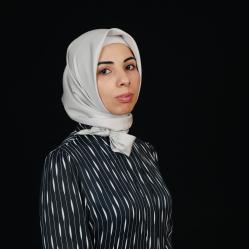

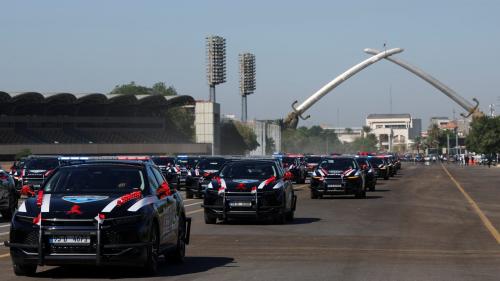
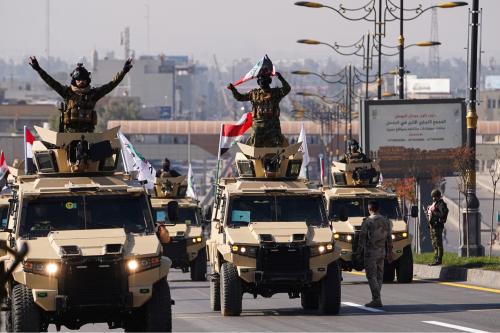
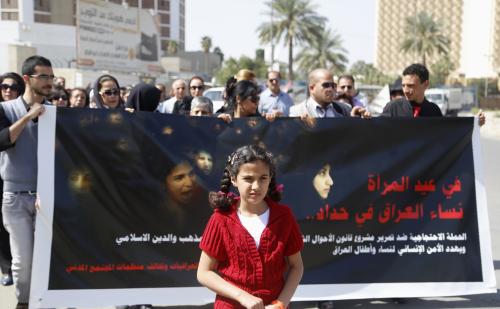

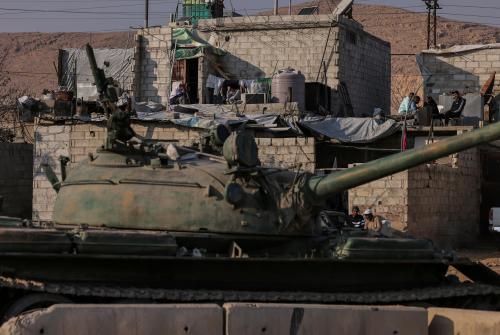
Commentary
Why Iraq’s stability demands deeper democratic reforms
November 7, 2025